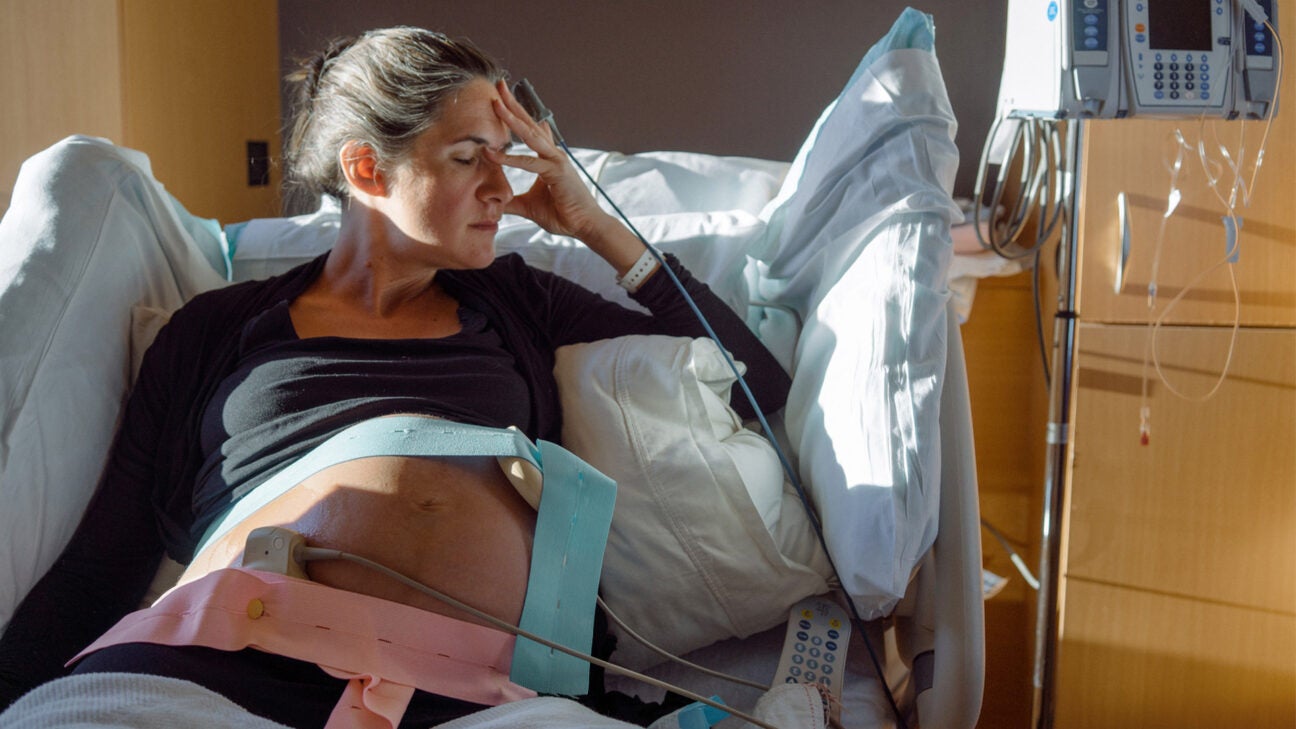
- Severe preeclampsia can raise the risk for pregnant women of developing dangerously high blood pressure.
- Researchers say the blood pressure medication nifedipine can help reduce this risk.
- Experts say less serious forms of preeclampsia can be treated with diet, exercise, and relaxation techniques.
Researchers say women with severe preeclampsia during pregnancy can be treated with extended-release nifedipine during labor and delivery to reduce the risk of dangerously high blood pressure.
The researchers detailed their findings in a study published today in Hypertension, an American Heart Association journal.
The study, completed at The Ohio State University Wexner Medical Center, had 110 participants. All the participants were at least 22 weeks pregnant and diagnosed with preeclampsia. All underwent induced labor.
Half of the participants were randomly assigned to take a 30 mg nifedipine pill daily until delivery. The other half were given a placebo.
During the study, researchers examined:
- The impact of the medication on delivery
- If and how long the baby needed care in the neonatal intensive care unit (NICU)
The findings included:
- 34% of the women who took nifedipine required acute hypertension therapy compared to 55% of the placebo group
- Almost 21% of those taking nifedipine required a cesarean section compared to 34% of the placebo group
- 29% of the babies whose mothers took nifedipine required admission to NICU compared to 47% of the placebo group
When looking at other medical factors, researchers reported there wasn’t a significant difference between the two groups, such as Apgar score, blood sugar levels, bilirubin, and the need for extra oxygen.
The scientists followed participants through hospital discharge and reviewed their charts until six weeks after delivery.
“When a pregnant individual has a history of high blood pressure before pregnancy, medical professionals might suggest long-acting nifedipine or other maintenance blood pressure medications any time in pregnancy. The goal is to keep blood pressure 140/90 mmHg or lower,” said Dr. Erin Cleary, a first author fo the study and a fellow in maternal-fetal medicine at The Ohio State University in Columbus, Ohio, at the time the study was conducted.
“When high blood pressure initially develops during pregnancy, we typically hold off on starting medication until blood pressure goes above 160/105 mmHg,” she told Healthline. “Our study differs because starting a long-acting medication during labor has not yet been studied.”
Preeclampsia: Diagnosis and treatment
“Preeclampsia is high blood pressure along with high levels of protein in the urine and swelling of the feet/ankles, legs, hands, and face,” said Dr. Sherry Ross, an OB/GYN and women’s health expertr at Providence Saint John’s Health Center in California.
“It can affect other body organ systems, making this a dangerous and sometimes deadly disease for both mom and baby. Preeclampsia affects around eight percent of all pregnancies,” she told Healthline.
Severe preeclampsia can result in emergency deliveries and heavy blood loss for the mother and can be life-threatening for both mother and baby. Doctors typically diagnose the condition after 20 weeks of pregnancy.
“Mild preeclampsia can be monitored with strict bed rest,” said Ross.
“Severely elevated blood pressure (>160/110 mmHg) places an individual at risk for stroke and placental abruption, where the placenta detaches early from the uterine wall, which may cause stillbirth or other complications to the fetus,” noted Cleary.
She added that blood pressure that is elevated for a long period of time can impact blood flow to the uterus and placenta, affecting fetal growth.
“Preeclampsia is a blood pressure problem that only occurs in pregnancy or the postpartum period; this has additional risks of kidney, liver, and blood-clotting dysfunction, as well as neurological problems,” continued Cleary. “The most dangerous form of this disease is eclampsia, characterized by sudden onset seizures. Due to all these risks, identification and treatment of high blood pressures are critical.”
Treatment often consists of rapid-acting IV blood pressure medications when blood pressure rises to dangerous levels during labor or delivery.
“This treatment can cause the fetal heart tracing to be abnormal and may necessitate cesarean section,” said Dr. Yen Hope Tran, an OB/GYN at MemorialCare Orange Coast Medical Center in California.
“The condition resolves at delivery of the baby and placenta,” she told Healthline. “Most of the time, hypertensive meds are needed to treat high blood pressure in pregnancy. However, patients can try to relax, take supplements like magnesium by mouth, go for a walk every day, and follow the DASH diet.”
Preeclampsia and Pregnancy: Blood Pressure Drug May Help in Severe Cases
Source: Pinoy Lang Sakalam



0 (mga) komento:
Mag-post ng isang Komento